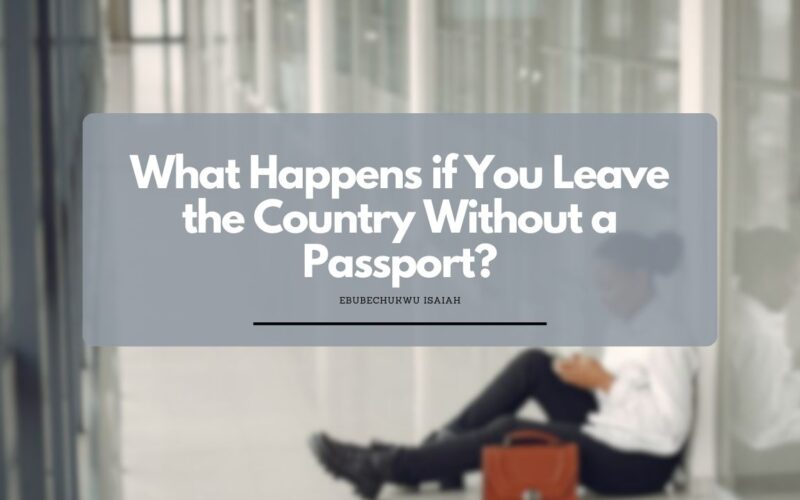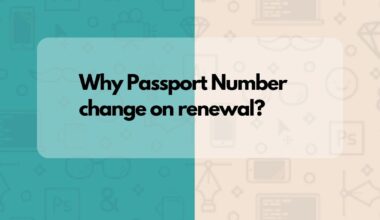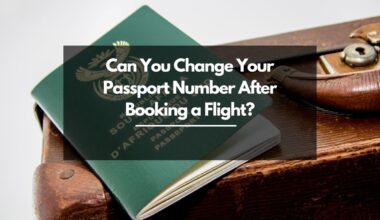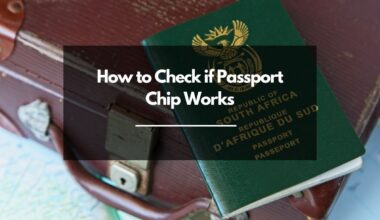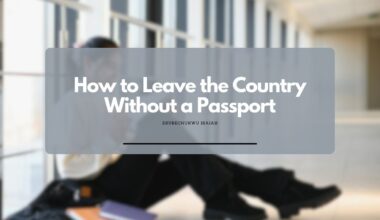As an Amazon Associate, I earn a small commission from qualifying purchases. Learn more about this.
You and I live in a world where borders are a big deal.
Crossing from one country to another usually means showing a passport. But what if you don’t have one? Can you still explore beyond your borders?
Let’s dive into this question together and find out what really happens when someone tries to travel without a passport.
Can You Leave Without Your Passport?
Leaving your own country without a passport might seem like a simple matter, but in reality, it’s quite complex.
A passport is the standard proof of identity and citizenship required for international travel. There are, however, some exceptions based on regional agreements.
For instance, in the European Union, citizens can travel between member states using their national ID cards instead of passports.
This kind of arrangement is unique and relies on mutual trust and agreements between those countries and usually falls under the Air Passengers Rights Regulation. If violated, could warrant a fine.
Outside of these special areas, the chances of crossing international borders without a passport are slim.
It’s not just about showing a ticket or having your bags packed; it’s about having the right documentation.
Border control authorities are strict about this.
They need to ensure that people entering and leaving their country are doing so legally.
This is important for national security, public safety, and managing immigration.
So, while there are some corners of the world where you can move freely without a passport, these are the exception rather than the rule.
For the majority of international travel, a passport is non-negotiable.
It’s the universally accepted way we travel across borders and the safest bet for any international traveler.
In the past few years, there have been random suggestions for achieving this, e.g. the introduction of the world passport in 2009, which never actualized or to say the least, accepted by most countries.
What Happens if You Leave the Country Without a Passport?

Firstly, it’s tough to even get out of your country without a passport.
Airports are the first place where you’ll face a hurdle.
When you check in for a flight, the staff always ask for your passport.
It’s their job to make sure you have the right documents. Without a passport, they won’t let you board the plane. It’s as simple as that.
But what if you’re not flying?
What if you’re crossing a border by car or on foot?
Even then, border officers will ask for your passport. It’s their way of checking who’s coming in and out of the country. If you don’t have your passport, they usually won’t let you cross.
Now, let’s say somehow you did manage to cross the border, perhaps illegally...
You’re in a new country without a passport.
This is where things get really tricky.
Without a passport, you have no official ID in that country.
Hotels, banks, even the police—if they ask for your ID, you’re in a bind. And if you get caught? That’s a problem.
You could be fined, or worse, detained. Countries take their border rules seriously.
In my travels, I’ve heard stories of people who tried to travel without a passport. It never ends well. They end up stuck, facing legal troubles, or having to go straight back home.
So, the short answer?
You’ll face a lot of problems. It’s not worth the risk.
Always make sure you have your passport with you when you’re traveling.
What If You Lose Your Passport Abroad?
There are steps to handle this situation. I’ve been there, and I know it can be scary, but it’s something you can manage.
First, retrace your steps. Sometimes, passports are just misplaced.
Check your hotel, restaurants you visited, or any place you’ve been. If you still can’t find it, it’s time to take action.
Next, report the loss to the local police.
This might feel like a hassle, but it’s important.
Get a copy of the police report. It’s your proof that you lost your passport and didn’t misuse it. This document will be crucial later.
Now, find your country’s nearest embassy or consulate.
They are your best help in such situations.
If you’re in the US, you can visit the U.S. Department of State’s website, which provides a list of U.S. embassies and consulates worldwide.
You may also want to call 1 (888) 407-4747 (U.S. and Canada) or 1 (202) 501-4444 (overseas) if you’re in a hurry.
Explain what happened and show them the police report.
They deal with lost passports often, so they’ll guide you through the next steps.
You’ll likely need to fill out some forms for a temporary passport or emergency travel document. This can get you home but might take a few days.
Remember to contact your airline or travel insurance company too. They might need to know about your situation, especially if you need to change your travel plans.
While you wait for your new passport, stay calm and stay safe. Use this time to explore the local area a bit more, or just relax. Losing your passport doesn’t have to ruin your trip.
Lastly, when you get back home, apply for a new passport immediately. And for your next trip, consider keeping a photocopy or digital copy of your passport. It’s not the same as the real thing, but it can help in emergencies.
